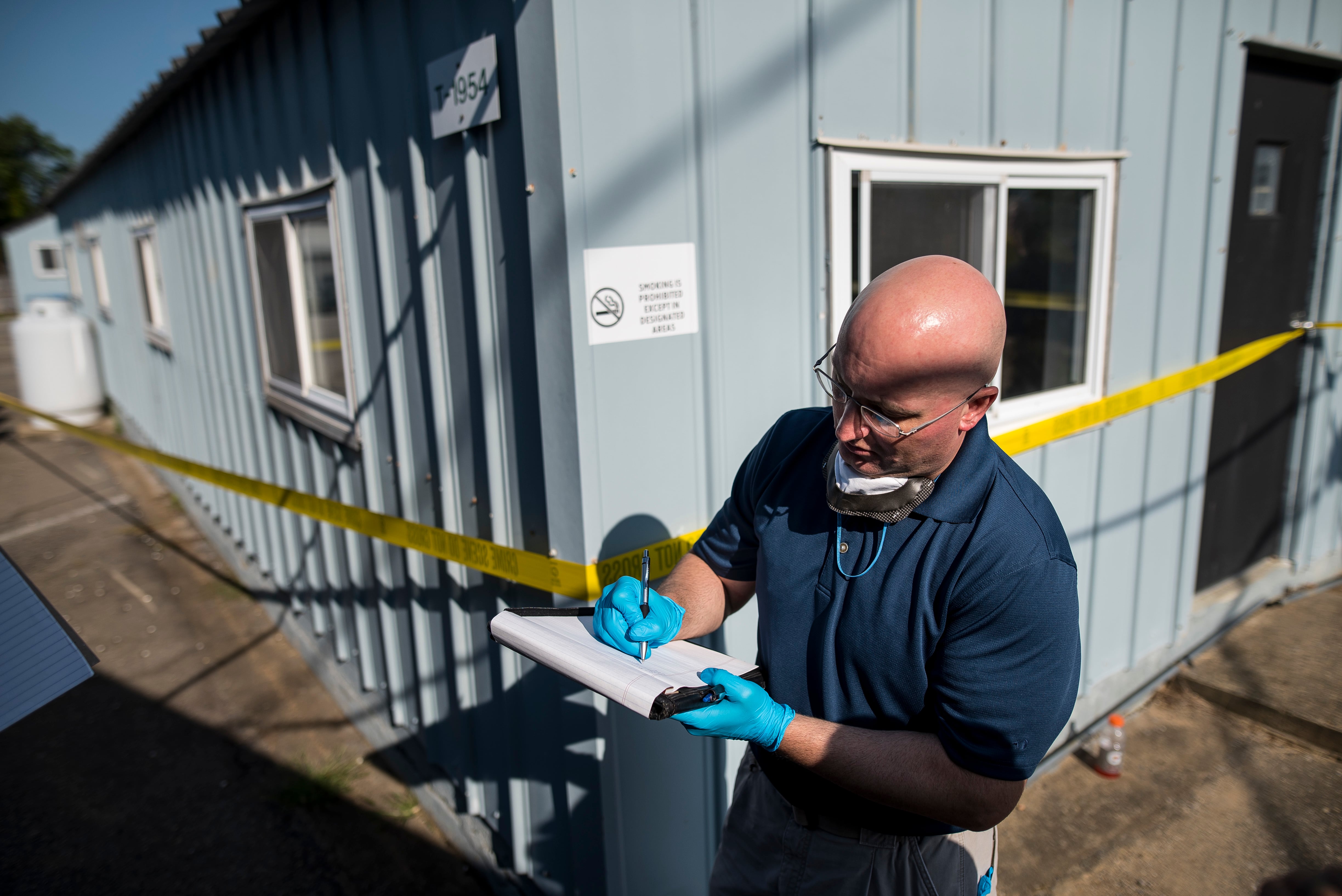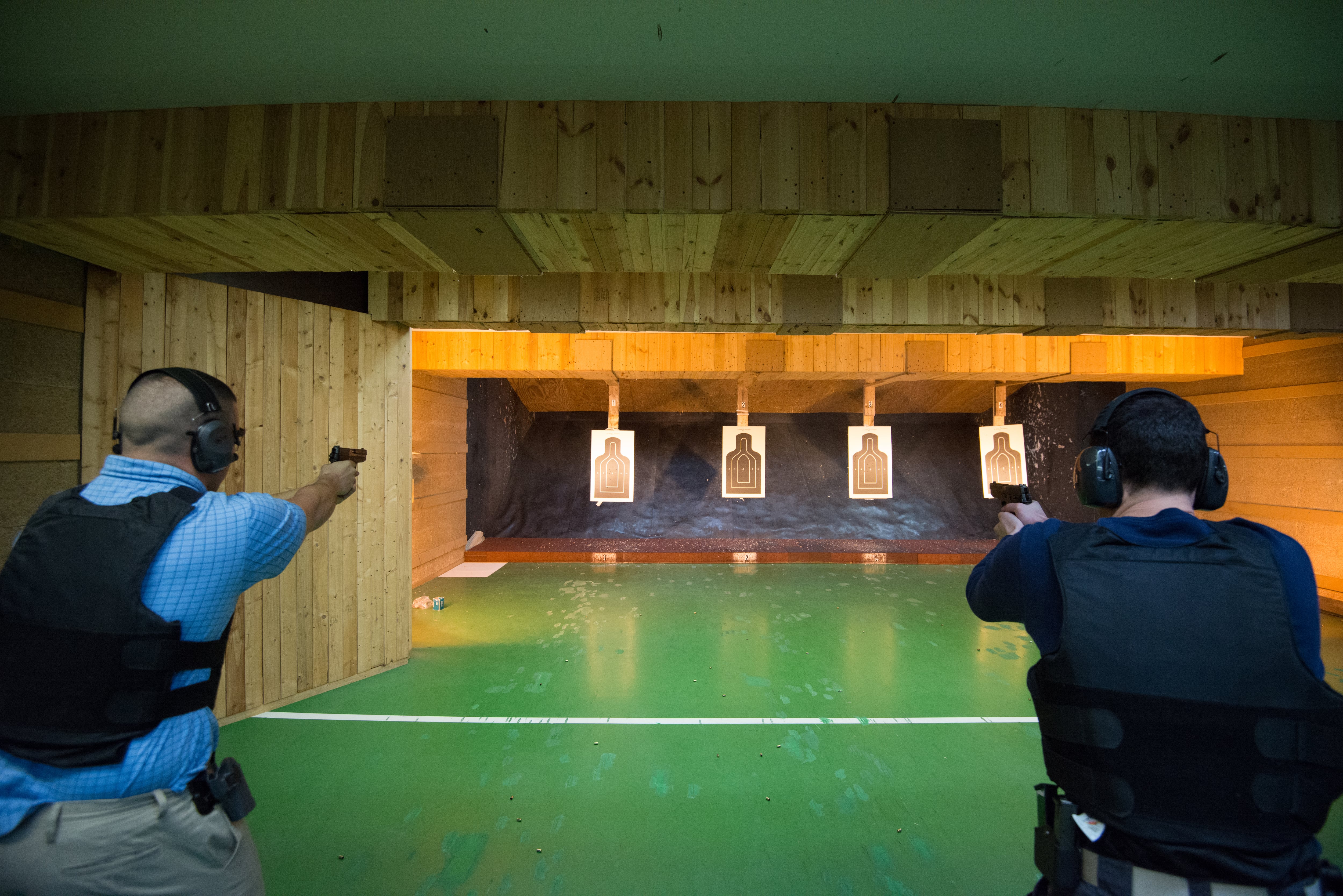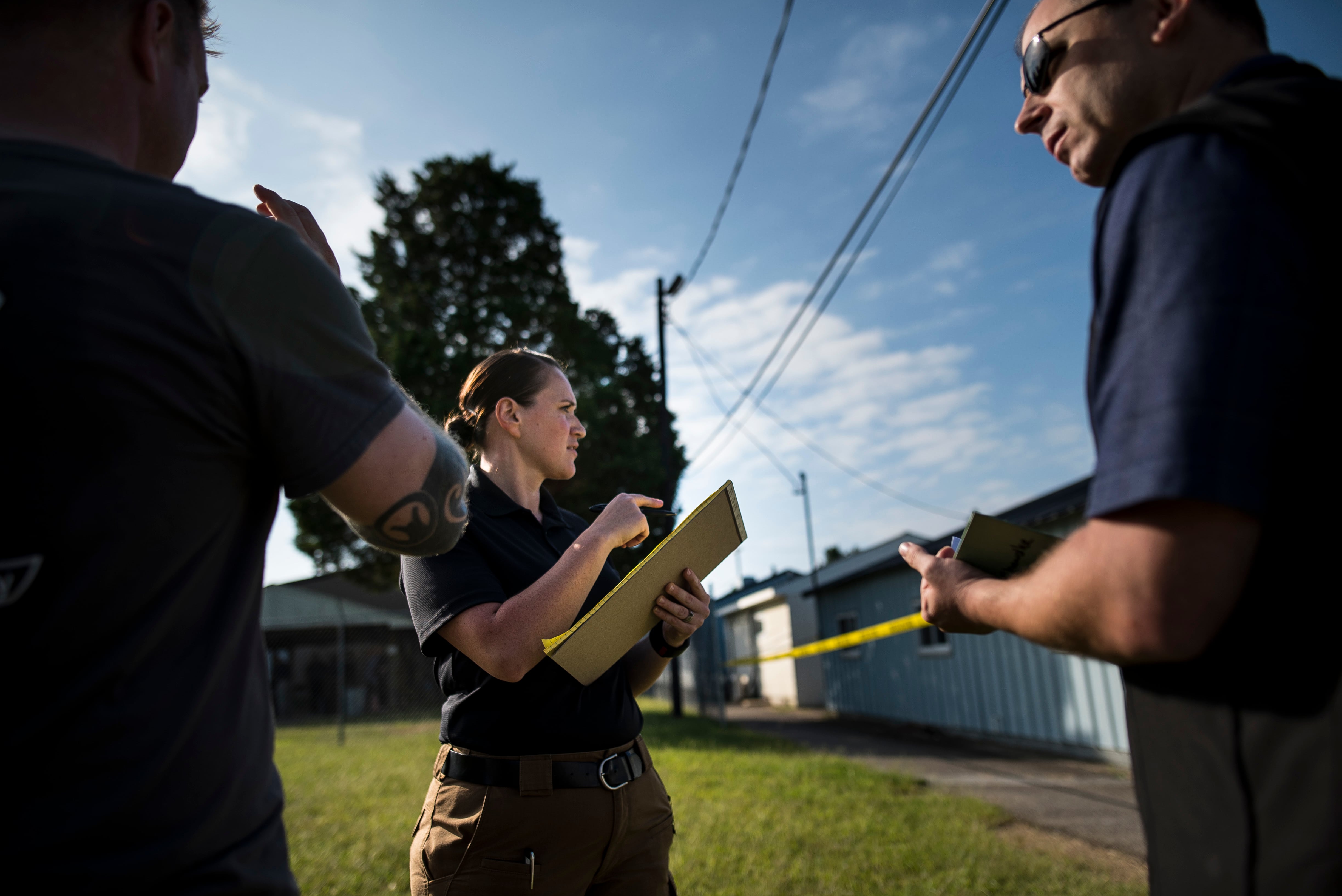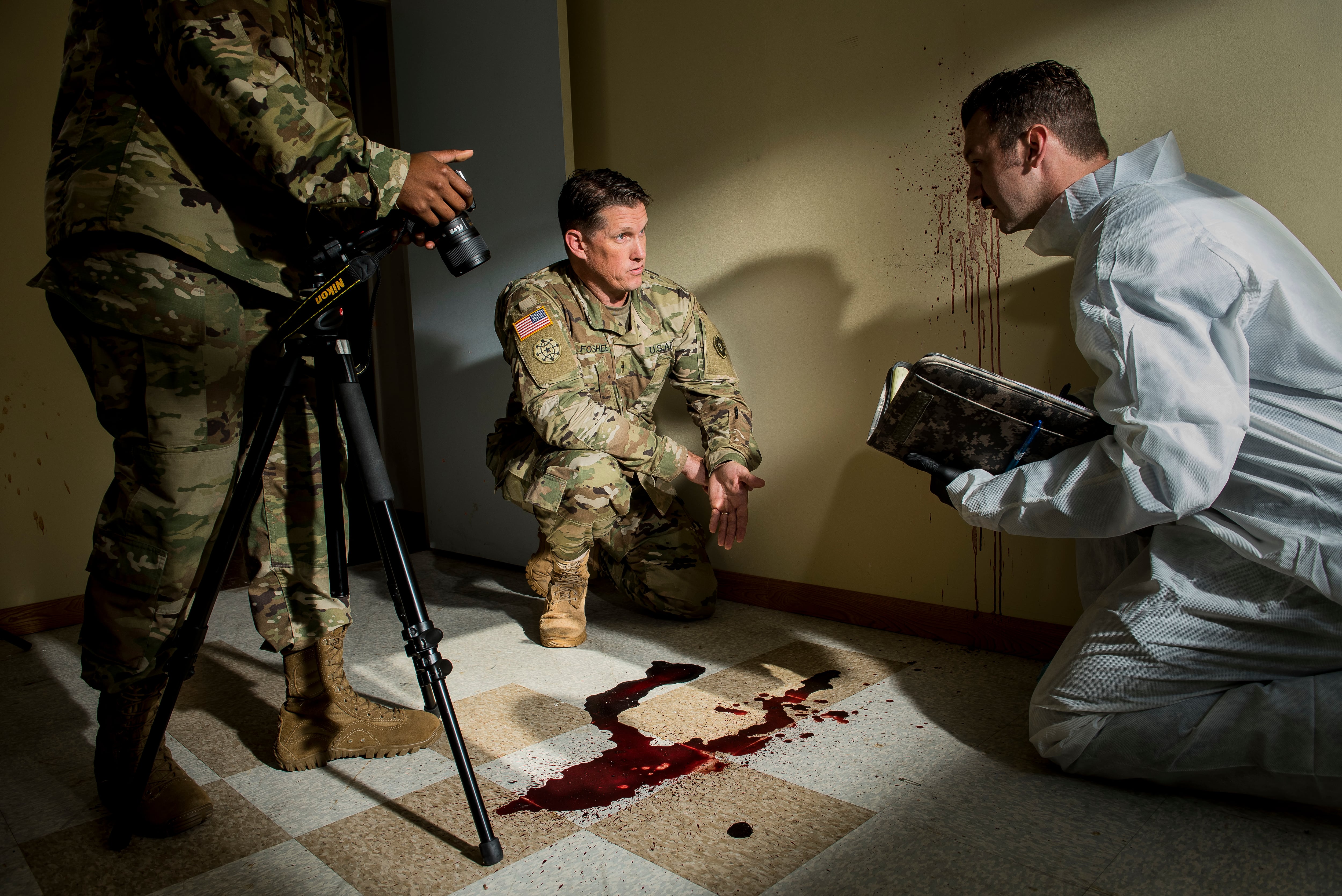Army Criminal Investigation Command has been dealing with inexperienced and overworked investigators at large Army posts for years, according to four career special agents who’ve served at a mix of domestic and overseas CID offices.
Many of the problems stem from CID’s subordination to military police officers, who lack backgrounds in felony investigations but influence priorities. Equally troubling are the security details to protect senior Pentagon officials, which steal away a large number of investigators in their prime, said the four agents, who spoke on condition of anonymity to protect their current and future jobs.
Newly minted agents are routinely dispatched to large bases, like Fort Hood, Fort Bragg or Fort Lewis, where they make up a significant portion of investigators assigned there, according to the agents.
Just as junior investigators become competent at their jobs, they’re regularly sent to work security for the secretary of defense, the chief of staff and other senior officials. It’s a detail called Protective Services Battalion, and it utilizes roughly one-quarter of available CID agents, according to those with whom Army Times spoke.
“There’s a significant number of agents who are stuck there — a lot of agents come in, they do two-and-a-half years, then they get orders to [Protective Services Battalion], where you don’t do investigations,” said one agent who spent three years in the battalion. “It’s a completely separate job field … you’re not getting experience with interviews, interrogations or evidence collection.”
When agents do return to the field, “now they’re in a leadership position, and they don’t know the job. That has been going on for a while and it’s really detrimental,” the agent added.
Fort Hood report scratches the surface
CID offers world-class training and a chance for enlisted soldiers to make huge professional leaps, multiple agents said. When they are properly employed, agents curb the flow of narcotics onto installations, chase white-collar criminals and resolve decades-old cold cases. But when agents are mismanaged, investigations suffer.
Serious problems with inexperienced and overworked agents were raised this month in a report on the CID detachment at Fort Hood, Texas, which was sparked by the killing of Spc. Vanessa Guillen inside an armory on post. Ninety-two percent of enlisted agents at Fort Hood in fiscal 2019 were apprentices, not fully accredited to conduct investigations solo.
“Everything they put in that report was said on a daily basis by actual case agents,” said one such agent who was previously assigned to Fort Hood. “The real problem with the MP [officers] is that they’re trying to run CID units like normal Army units, and that is absolutely impossible to do.”
Junior agents assigned to Fort Hood bungled some key steps early in the investigation into Guillen’s disappearance and subsequent death, according to the 152-page report compiled by an independent committee.
Those agents “bought wholesale” into inaccurate witness testimony that initially deterred scrutiny of the man prosecutors now say killed Guillen, according to the report. Experienced investigators would “not have been thrown off by the red herring,” said Chris Swecker, a former FBI inspector who served on the independent committee.
Provost Marshal of the Army Maj. Gen. Donna Martin, who is also in charge of CID, said in a statement that her office welcomes the report’s findings and appreciates the hard work of those who compiled it.
“This report has not only identified certain areas for improvement, but has energized an impartial and constructive conversation within CID that we are convinced will pay huge dividends for CID and the Army as we continue to conduct very complex felony investigations around the world,” Martin said in response to queries regarding this article’s key assertions.
“We have tremendous talent and expertise in CID,” Martin added. “Our agents accomplish amazing things every single day, but we can do better and rest assured we will.”
Last week, an Army Regulation 15-6 Investigation was initiated to assess the 6th Military Police Group, which oversees agents at Fort Hood. But agents said they worry that if the investigation is led by a military police officer, problems with CID’s leadership structure could be ignored.
Military police have a separate mission
Command sergeant major and officer positions at CID headquarters units are given to MPs, according to the agents and online biographies. Despite their similar names, CID agents and MPs are significantly different.
“If you review their training and background you will see that none of them have any sort of investigative experience, either in training or in positions held,” one agent explained. “This creates sort of a two headed monster.”
The end result is senior leaders focused on what they know how to do, which is lead a field MP unit and not a criminal investigative organization, according to the agent. The emphasis is inevitably placed on soldiering tasks, NCO academy and other regular Army requirements, according to multiple agents.

“For the MP officers that are in charge, that is almost as important to them in their [officer evaluation record] [as] the investigations,” an agent said. “They are focused on typically mundane Army tasks, and criminal investigations are not always the top priority.”
That sort of command team marginalizes the effectiveness of senior CID warrant officer agents who fill the roles of group operations officers, the agent added.
Agents say they were been told that elevating MPs within the organization helps deal with shortages of senior enlisted agents and warrant officer agents.
But some in the career field believe it should be separated from the MP Corps and perhaps placed under the Army Inspector General, which is how the Air Force handles its version of CID, called OSI. The Air Force also allows officers to become OSI agents, unlike CID, helping fill out that organization’s leadership roles with agents.
Screenshots from a private social media group, where current and retired CID agents congregate, show people overwhelmingly agree with the Fort Hood report’s findings and repeatedly mention the presence of MP leadership as a hindrance to their mission.
Army Times reviewed a dozen screenshots of the group’s comment chains, but agreed not to post them to prevent retribution, as some posters are still in the service and others might seek government jobs in the future.
High case loads and no help
At a congressional hearing Dec. 9, Swecker recommended that CID offices be staffed with agents that have five to eight years’ experience. But there simply are not many agents in that demographic, according to those familiar with the career field.
Many agents “burn out” working a high case load at their first or second assignment, according to the career agents.
Big posts, like Fort Hood and Fort Drum, have large caseloads, stretching to the limit the junior agents who are predominantly sent there. But less busy assignments — in Germany, for example — allow agents to devote more time to key cases and be proactive in combating felony crimes.
“Instead of trying to keep your head above water, we really could dig in and do productive work,” an agent explained of his time assigned to Europe.

Some of the agents who manage not to burn out will opt to become CID warrant officers.
Those warrant officers, however, are not typically conducting investigations. They’re burdened with administrative tasks, and though they supervise investigations, the “ridiculous amount of checklist driven requirements sidelines them to desk duty,” said one agent who became a warrant officer.
“That’s what typically causes the junior agents to be out on their own conducting investigations,” the agent added.
Local police have also admitted to becoming frustrated as they try to develop working relationships with those field agents, as well as special agents in charge of offices, only to see them move to a new post after a few short years, according to one agent.
Checklist obsessed junior agents
Many junior agents are forced to closely follow “draconian” checklists and regulations, according to an agent. “Common sense kind of gets thrown out because people are so worried about making sure they don’t get in trouble for missing a step or deviating,” the agent added.
In the Guillen case, the Fort Hood report chided agents for not examining or taking custody of the alleged killer’s phone when they first interviewed him. That’s likely the result of junior investigators being obsessed with checklists, according to the agents.
“It would totally make sense to check that … but that’s not what they’re worried about,” one agent said. “They’re worried about covering bases. And that’s largely because of a lack of experience, but it’s also being stretched too thin and having a thousand things to do.”
The agents’ complaints echo the Fort Hood report, which found CID agents at the post were pushed to develop “a complete file as opposed to identifying and working leads and suspects that are most likely to resolve cases.”
One agent Army Times spoke with compared the checklists to looking for a lost set of keys. Even if you retrace your steps and find the keys immediately, you have to continue looking for the keys at all the other places you went that day, the agent explained.
When Army CID is partnered with outside law enforcement agencies, the disparity in freedom to think creatively on the job is striking.
“Many times I have been working investigations and have been asked by our state and federal partners why I was doing a specific thing, that it was a waste of time and would have no impact on a case,” an agent recalled. “My answer was always ‘that’s what the book says I have to do.’ ”

There’s a lot of pressure every two years to pass IG inspections that look at how the thoroughness of investigations. This often causes agents to eschew independent decisions and adhere blindly to regulations, even though it may not make sense, according to multiple agents.
It results in simple cases being investigated as if “they are the crime of the century,” one agent added. “We would spin our wheels and work, work, work these cases, and that eats up a lot of time.”
Even if a preliminary investigation yields video evidence revealing no crime has been committed, and an Army judge advocate agrees, full investigations are regularly ordered to curb any scrutiny from IG inspectors later on, agents said.
Abusive sexual contact cases and narcotics-related offenses, even minor ones, make up a significant number of caseloads.
“None of the senior leaders have faith in MPI [military police investigators] to investigate anything,” an agent explained. “That’s why we’re working drug residue at a gate. We have federal agents out there because a roach had some sort of residue on it.”
‘Leaning forward on the findings’
Several agents said that “civilianizing” the CID ranks by removing some mandatory Army requirements might help address the issues present in the career field. However, all four agents said that CID’s location under the MP Corps has been limiting.
Multiple agents noted that recruiting into CID is not an issue, but retention is. In order to close the gap in supervisory roles, a program was started to allow officers to resign their commission and become warrant officer agents.
“They’re immediately placed into that middle management category with zero experience,” an agent said. “It was just a bad program.”
One agent believed that MP officers want influence over the CID enterprise because the high-profile felony cases they handle are briefed up to the highest levels of the Army.
More typical MP tasks involving petty crime, like traffic violations, domestic violence and larceny, don’t receive as much attention, the agent explained.
“There’s no MP cases being briefed on a daily basis,” the agent added. “If you want face-time with the brass, then you better somehow be involved with CID, because that’s truly what’s being briefed up there at that DoD level.”
Provost Marshal of the Army Maj. Gen. Martin said in her statement to Army Times that she was focused on mining the Fort Hood report for solutions to move the career field forward.
“I can tell you without a doubt, CID is leaning forward on the findings from the report and will continue to perform all felony-level criminal investigations at the highest level,” Martin said in her statement. “We are embracing the findings and immediately considering many options and changes in how we move forward, as well as how we are organized and resourced.”
Kyle Rempfer was an editor and reporter who has covered combat operations, criminal cases, foreign military assistance and training accidents. Before entering journalism, Kyle served in U.S. Air Force Special Tactics and deployed in 2014 to Paktika Province, Afghanistan, and Baghdad, Iraq.





